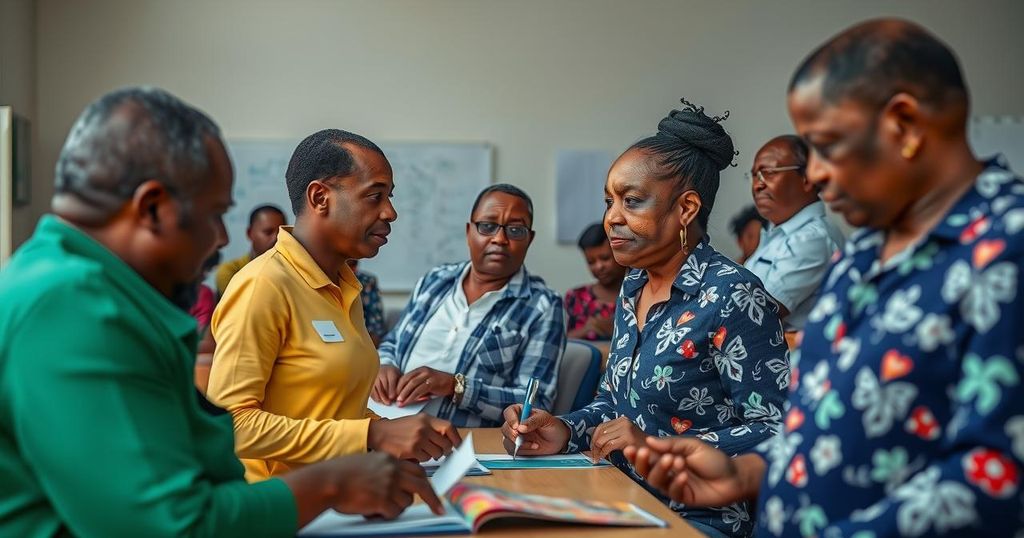Business
economics
Politics
AFRICA, ALLIANCE DU CHANGEMENT, ALLIANCE LEPEP, DAVID STAFFORD, DIEGO GARCIA, ECONOMY, FISCAL POLICY, GOVERNANCE, GOVERNMENT, INDIAN OCEAN, LEPEP, LINION REFORM, MAURITIUS, NAVIN RAMGOOLAM, PARLIAMENTARY SEATS, PORT LOUIS, PR, REUTERS, ROSHI BHADAIN, SUBASH GOBINE, TAX POLICY
Fatima Khan
0 Comments
Mauritius Legislative Elections Focus on Economic Challenges
Mauritius is holding parliamentary elections as economic concerns regarding the cost of living weigh heavily on voters. Prime Minister Pravind Kumar Jugnauth and his main challengers are proposing various reforms, including wage increases and pension improvements. As over one million citizens prepare to vote, the political focus remains on economic opportunities and social welfare enhancements amidst a backdrop of governmental actions limiting free speech.
Mauritius is conducting parliamentary elections amidst growing concerns about the rising cost of living, with Prime Minister Pravind Kumar Jugnauth and his opponents vying for voter support by pledging economic reforms. Polling commenced at 7 a.m. local time, and more than one million voters are expected to select representatives for 62 parliamentary seats from a total of 68 contesting parties and alliances. Despite economic growth projections of 6.5 percent, many citizens feel disconnected from the benefits, intensifying focus on issues such as wage increases and pension enhancements. Jugnauth’s Alliance Lepep coalition is advocating for raised minimum wages, pension increases, and a reduction in value-added tax on essential goods, while the opposition, led by the Alliance du Changement coalition, promises similar improvements along with the provision of free transport and internet services, along with decreased fuel prices. Political analysts indicate that the youth vote could be pivotal this election cycle as they seek innovation and job opportunities rather than just financial adjustments. Recent governmental actions have sparked concern; the Jugnauth administration temporarily blocked social media platforms, citing national security after leaked discussions, lifting the ban following significant backlash from opposition parties. The electoral battle is not just a matter of securing parliamentary seats but also deciding who will lead as Prime Minister, making the outcome crucial for the nation.
The context of this election in Mauritius is shaped by a notable economic growth forecast, coupled with significant public dissatisfaction regarding the cost of living and economic realities. With a population of approximately 1.3 million, Mauritius considers itself a crossroads between Africa and Asia, with a strong offshore financial service sector, tourism, and textiles driving revenue. Political discourse is currently dominated by issues surrounding wage increases, pension adjustments, and the overall living costs, thereby influencing voter priorities as they head to the polls. The health of the economy juxtaposed against public sentiment creates a dynamic electoral environment.
In summary, the parliamentary election in Mauritius is primarily focused on addressing the cost of living concerns that have resonated with voters despite positive economic forecasts. With various parties presenting their plans for economic improvement and social welfare increases, the outcome of this election will be instrumental in determining the future direction of the country. Moreover, the unique political landscape, alongside the influence of the youth demographic, will play a crucial role in deciding the election’s victor and future government policies.
Original Source: www.arabnews.com




Post Comment